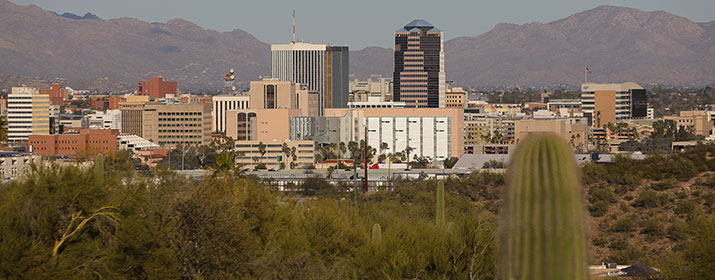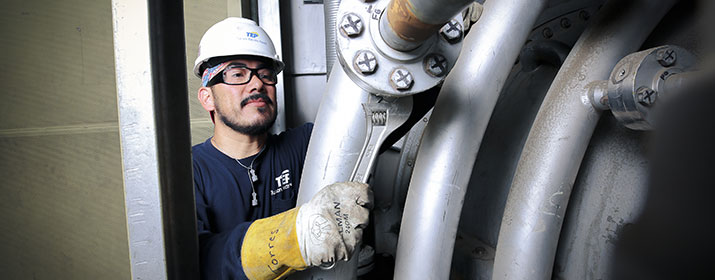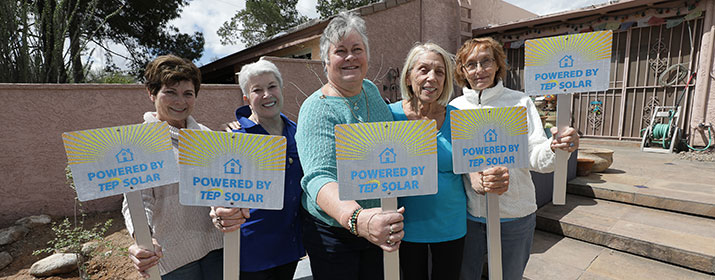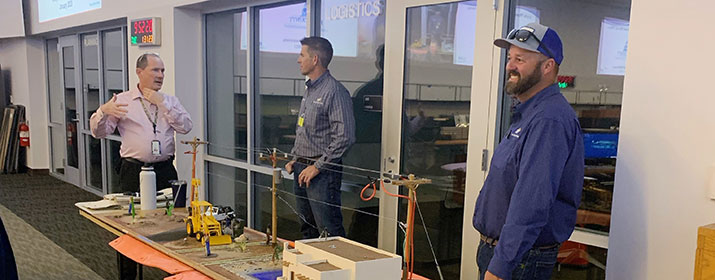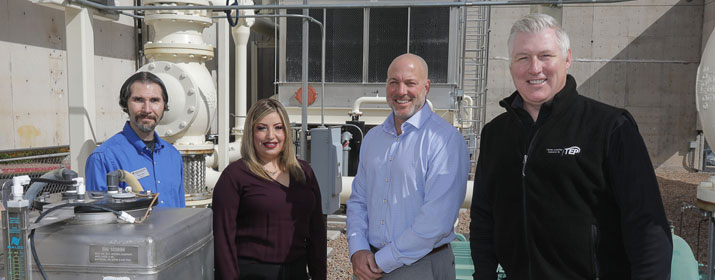
Pima Community College buildings are now a little cooler and brighter, thanks to improved lighting and better climate control equipment. The energy-efficient upgrades were supported by TEP to promote sustainability and long-term cost savings.
TEP’s Business Energy Solutions program helps schools, nonprofit organizations, government agencies, and businesses of any size save on approved energy-efficient improvements, reducing both upfront costs and long-term bills. Pima College used the program to install new energy-efficient lighting, sensors, energy management systems and chiller variable speed drives.
“TEP encourages local businesses and schools to explore our programs that can help them realize substantial savings on energy costs while reducing emissions,” said Aracely Lucero, Senior Key Account Manager and TEP’s liaison with the college.
TEP provided nearly $879,000 in rebates to Pima College for upgrades at seven locations in 2023 and 2024. This work was part of an energy conservation contract between Pima College and Trane Technologies for systems modernization with an efficiency focus. The initiative aligns with Pima College’s commitment to sustainability.
As a result of the upgrades, the college is annually saving nearly 8 million kilowatt hours of energy – enough to power 696 homes – or 671 million smart phones. Pima’s estimated annual cost savings will be about $395,000.
“This makes a big impact, not only on Pima Community College, but in the Tucson community. When consumption is reduced, we don’t have to build as many new energy resources,” Lucero said.
Making Buildings Efficient
The upgrades were made at locations across the community, including PCC’s West, Downtown, Desert Vista, East and Northwest Campuses as well as its maintenance and security and main district offices.
“The college is grateful that these opportunities are available through TEP,” said David Clark, Director of Facilities Infrastructure.
Pima collaborated with TEP through our partners, including Franklin Energy, to conduct the work.
Buildings now have replaced older interior and exterior lighting with LEDs, resulting in “substantial savings,” Clark said. Pima also modernized HVAC systems with new controllers, called building automation systems, so the college can adjust thermostats depending on the size and type of facilities – like classrooms or kitchens vs. large auditoriums.
“We’re targeting specific temperature ranges so that the system is not overtaxed. It’s being monitored so it’s not expelling energy needlessly,” Clark said.
In 2022, Pima qualified for about $265,000 in rebates on 14 projects. This year, Pima is continuing to work on additional upgrades to support the energy transition, Clark said.
Serving as Education Partner
In addition to incentivizing energy-efficient upgrades, TEP collaborates regularly with the college on education, career preparation, scholarships and student support that enhance the job growth and economic development of the region.
Pima students in programs such as automated industrial technology are learning skills that can be applied for future jobs at TEP, including at our generating stations and control rooms, said Greg Wilson, Pima’s Dean of Applied Technology.
On April 18, TEP representatives participated in National Signing Day, hosted at Pima, in which high school and college students commit to completing programs at Pima, much like athletes do for committing to college sports teams.
Learn more about the ways that TEP supports Pima College.
Interested in energy-efficient upgrades for your workplace? Explore TEP’s programs and request a free rebate assessment. Find a TEP-approved contractor to get started.

